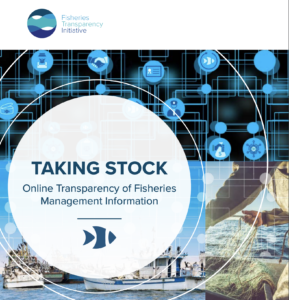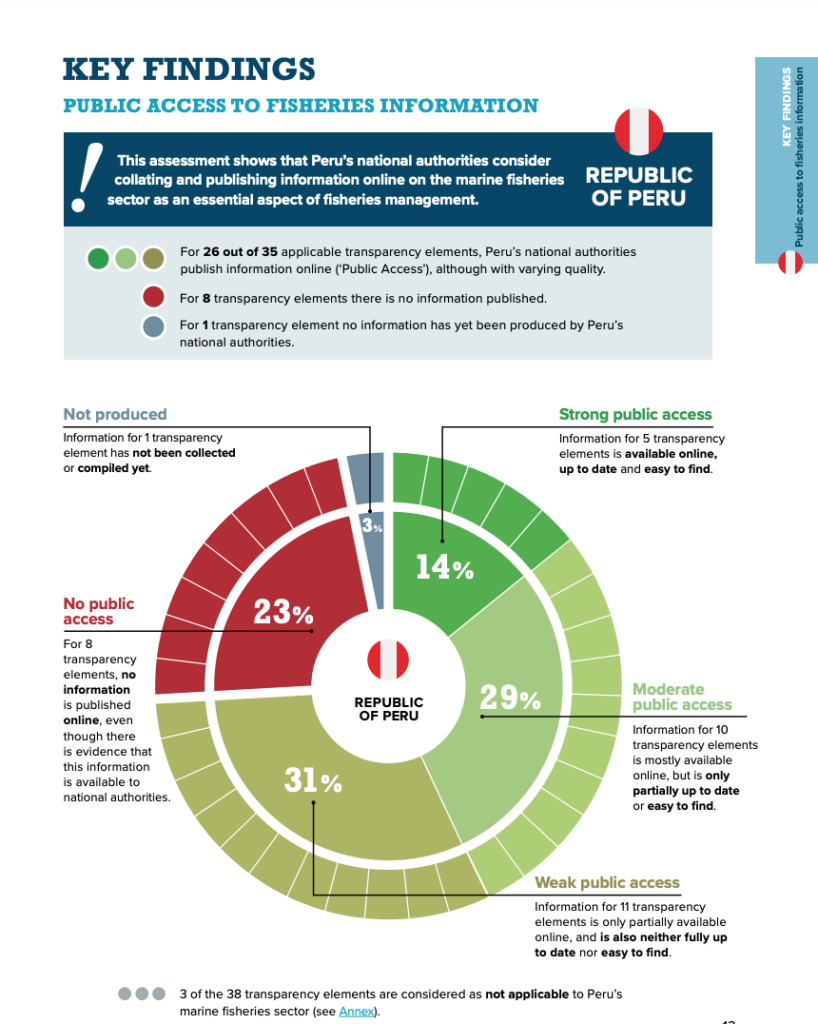From the Fisheries Transparency Initiative (FiTI):
TAKING STOCK – Online Transparency of Fisheries Management Information
The Fisheries Transparency Initiative (FiTI) has worked with several governments to assess the level of fishing regulations and data that are transparent and accessible to the public (such as stock assessments, laws, subsidies). Their main objective is to contribute to the sustainability of marine fisheries by increasing the accessibility, quality and credibility of national fisheries management information. The hope is that making management decisions more transparent gives way to an informed discourse about a country’s fisheries, and positively contributes to the economy and those who depend on the health of their ocean ecosystem. The UN Sustainable Goals, or, SDGs also spotlight the public right to information.
The FiTI is implemented in countries through national multi-stakeholder groups, consisting of representatives from government, business and organised civil society. These groups work collectively to assess the information in the public domain, make recommendations on how to improve information published by national authorities and jointly approve the publication of FiTI Reports. Out of the seven countries that have joined the FiTI so far, Seychelles and Mauritania are the first two countries that have started the process of publishing these in-depth, annual FiTI Reports. Due to these reports, national authorities in both countries made a range of previously unpublished information now publicly available for the very first time, including the contracts of foreign fishing access agreements, vessel registries, license information and information about the country’s small-scale fisheries sector and their contributions.
However, it was recognised that several approaches are needed to provoke a profound shift towards better and more transparent marine fisheries management. Therefore, the FiTI has launched a new program: TAKING STOCK – Online Transparency of Fisheries Management Information. These country assessments examines the level of information that national authorities publish on government websites regarding the country’s marine fisheries sector. Unlike FiTI Reports – which are multi-stakeholder driven – these TAKING STOCK assessments are desktop reviews by the FiTI International Secretariats and national reviewers. Beyond simply investigating what is and is not published online, the assessments also consider if information is freely accessible, up to date and easy for people to find – all important factors for properly understanding the current state of the sector. The programme aims to:
- Accelerate global understanding of how different governments around the world – including those that are not likely to join initiatives such as the FiTI (such as China or Russia) – approach transparency in marine fisheries management;
- Provide a useful baseline for countries that are beginning the process of increasing transparency in fisheries management;
- Spark interest among stakeholders from countries hesitant to enhance transparency.
The first TAKING STOCK assessment reports for Bangladesh and Peru have been published recently, kicking off a series of such national studies set to be published over the coming years (including for the US, Mexico, China, Russia, Chile, Indonesia). From the assessment was in Peru, in collaboration with WWF Peru:
“Overall, this assessment shows that Peru’s authorities provide substantial information on the country’s marine fisheries sector and that there is a genuine interest in sharing important information with the public: information for 26 out of 35 transparency elements (74%) is publicly available on government websites, although information is of varying quality…”
To read more about the methodology behind the transparency assessment and relevant synopses on each country assessment, please visit:
[sc name=”embed-url” text=”https://www.fiti.global/taking-stock” ][/sc]
To see Taking Stock reports on particular countries— please click:
You can also read the Q&A with FiTI’s Executive Director:
https://fishwise.org/story-hub/qa-with-fiti/

